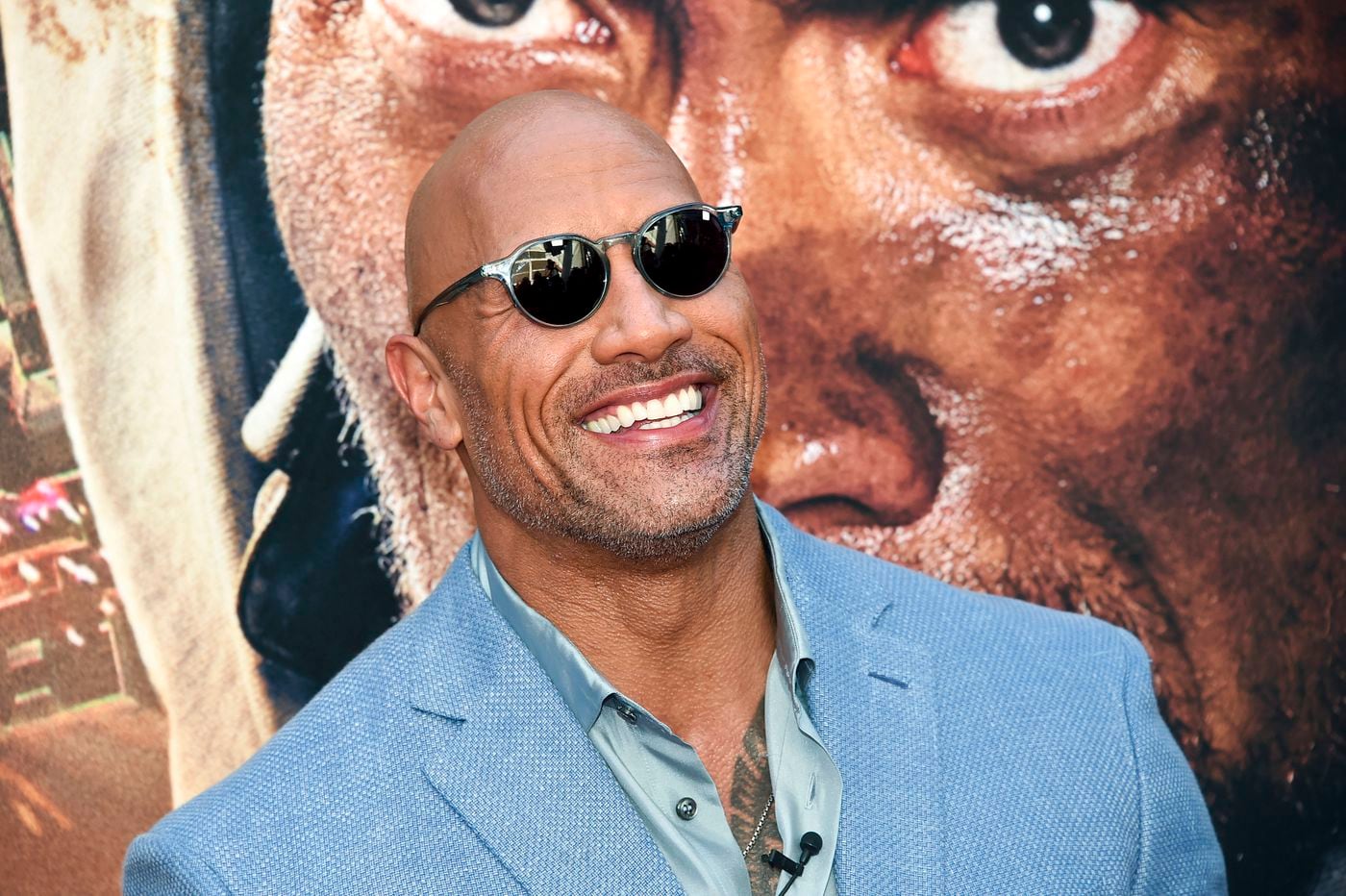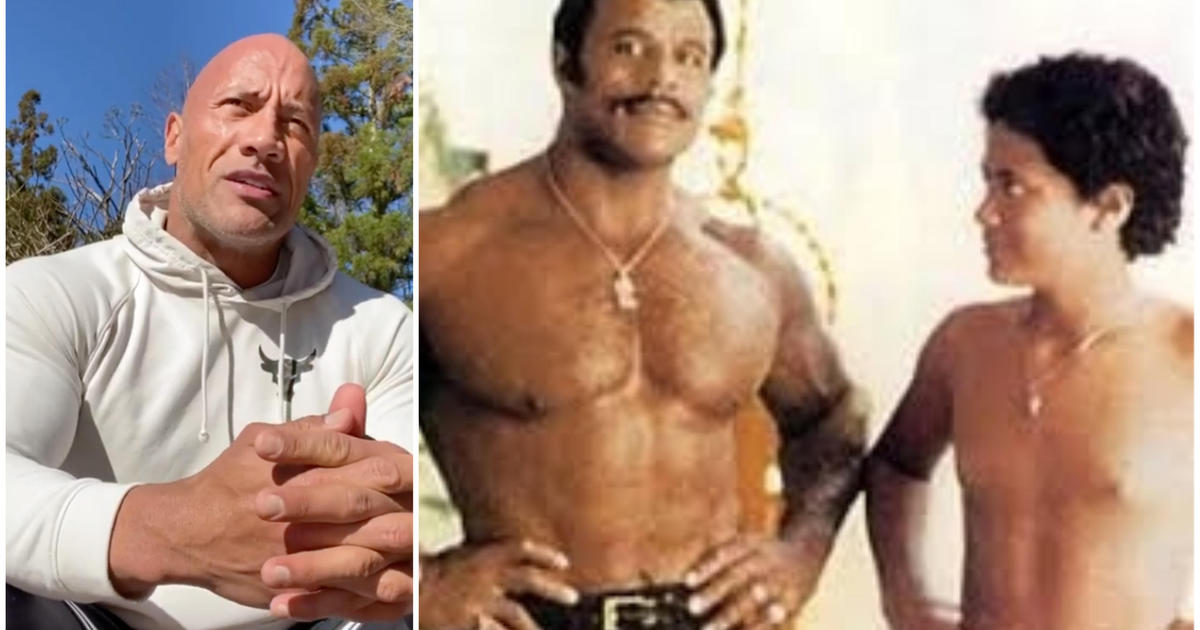Is Dwayne "The Rock" Johnson truly gone from this world? The answer, thankfully, is a resounding no. The internet, once again, has been ablaze with a fabricated story, another cruel chapter in the ongoing saga of celebrity death hoaxes.
This time, the false narrative gained significant traction, spreading across social media platforms like wildfire. "Dwayne Johnson death hoax spreads on Facebook," read one headline, reflecting the widespread dissemination of the misinformation. The rumors, which gained momentum on a particular Monday, sent shockwaves through the online community, with many unsuspecting fans and followers sharing the news, believing it to be true. The origins, as is often the case with such fabrications, appear to stem from a malicious attempt to generate clicks and engagement, exploiting the public's fascination with the actor's life.
| Category | Details |
|---|---|
| Full Name | Dwayne Douglas Johnson |
| Born | May 2, 1972 (Age 52) |
| Birthplace | Hayward, California, U.S. |
| Occupation | Actor, Producer, Businessperson, and Former Professional Wrestler |
| Years Active | 1996present |
| Known For | Professional Wrestling Career as "The Rock," and starring roles in films such as Fast & Furious franchise, Jumanji film series, and Moana |
| Height | 6 ft 5 in (196 cm) |
| Spouse(s) | Dany Garcia (m. 19972008) Lauren Hashian (m. 2019) |
| Children | 3 |
| Net Worth | Estimated $800 Million (as of 2024) |
| Reference | IMDb |
The digital landscape is littered with such deceptive stories, preying on our collective curiosity and trust. The story claimed, rather sensationally, that Johnson had died, with the narrative often spun around a supposed stunt gone wrong during a movie shoot. These false reports are designed to mislead, and in this instance, it was yet another attempt to capitalize on the public's interest in the actor.
The proliferation of the hoax illustrates the challenges of navigating the digital age. The actor's own Facebook page, for instance, had garnered nearly one million "likes," representing a massive audience vulnerable to such misinformation. For many, the initial reaction is one of disbelief, and then, perhaps, of sadness. But it also highlights the ease with which false narratives can spread, fuelled by clickbait headlines and the sometimes uncritical sharing habits of social media users.
The fabricated story, like others that have preceded it, employed a familiar playbook. The alleged incident was presented with a veneer of authenticity, often using the logos of reputable news organizations to lend credibility to the claims. "Dwayne the Rock Johnson dies at 47 after a terrible stunt attempt failed," read one headline, designed to shock and draw the reader in. This attempt to mislead the audience is a common tactic used by those who create and spread this type of false content.
This isn't the first time Johnson has been targeted by such hoaxes. The false rumors of his demise have circulated before, with previous instances in 2011, 2014, and 2017, according to the fact-checking website Snopes. In 2011, the actor himself took to social media to debunk the rumors, posting the straightforward message: "\u201crumors of my death are false,\u201d he wrote on Facebook. "\u201cim still bringin it 24hrs a day, 7 days a week." His response was a reminder of his resilience and of the tireless work ethic that has characterized his career.
The actor's father, Rocky Johnson, a legendary wrestler, passed away in January 2020. Dwayne himself took to social media to share his grief, posting an emotional tribute. "Dwayne the Rock Johnson is speaking out about the loss of his father, Rocky Soul Man Johnson, a WWE Hall of Famer who died last week at the age of 75. On Sunday, he posted an emotional message," reported news outlets at the time, documenting the genuine sadness that accompanied this real loss.
In 2014, the same type of misinformation took hold, with hoaxers claiming a stunt gone wrong had ended his life. The headline at the time, falsely reporting: actor dwayne johnson died while filming a movie in new zealand early this morning. These examples provide insight into the cyclical nature of these types of hoaxes and the way they resurface, leveraging existing public interest and often exploiting recent events to add an extra layer of believability.
Adding to the layers of potential confusion for fans, is that the actor, Dwayne, has opened up about his personal struggles and hardships throughout his life. He has been open about his origins, and the hardships he has overcome. By the time he was 13 years old, he said, he had lived in 13 different states.
The actor's career has been built on hard work, dedication, and charisma. From his beginnings in professional wrestling, where he became known as "The Rock", to his current status as one of Hollywood's biggest stars, his journey is inspiring. As "The Rock," he captivated audiences with his electrifying presence and memorable catchphrases. His transition to acting was seamless, and his success in film is a testament to his versatility and appeal.
His filmography boasts a string of hits, including several installments of the Fast & Furious franchise, Tooth Fairy (2010), and Baywatch (2017). His choice of roles is varied, but consistently brings in large audiences to the theaters. Johnson has also expanded his horizons, venturing into production and business, further solidifying his place in the entertainment industry.
The frequency with which these hoaxes target celebrities highlights the darker side of the internet. The motivations behind such actions are often unclear, but the impact is undeniable. It causes unnecessary distress to the individuals targeted, as well as to their families, friends, and fans. It also contributes to the erosion of trust in online sources, making it more difficult to distinguish between truth and falsehood.
The rise of fake news has created a new layer of challenges. The sophisticated techniques of misinformation are becoming more common, and the speed with which stories spread can be difficult to counteract. The responsibility to critically evaluate information and to rely on credible sources has never been greater. Checking multiple sources, looking for evidence of fact-checking, and being wary of sensational headlines are all important steps in navigating the online world.
In this instance, the hoax appears to have been quickly debunked by several sources, but it nonetheless served as a reminder of the need for vigilance and critical thinking. While the actor remains unharmed and very much alive, the incident serves as a cautionary tale for the digital age. It reminds us of the importance of verifying information before sharing it and the power of rumor and false news.
The viral nature of the story is, unfortunately, nothing new. A report appeared on the internet on a recent Wednesday, claiming that dwayne the rock johnson died after a failed stunt. The report carried the following headline, bbc: dwayne the rock johnson dies at 47 after a terrible stunt attempted failed. It had used british broadcasting corporation label to appear as an authentic news organisation.
These recurring events also highlight the personal price paid by the targeted individuals. Johnson, like many other celebrities, has had to publicly address and dismiss false reports of his death. This requires him to take time from his other professional commitments and to comfort his family and friends. In a world where privacy is increasingly difficult to maintain, the intrusion of these hoaxes is both unwelcome and disturbing.


